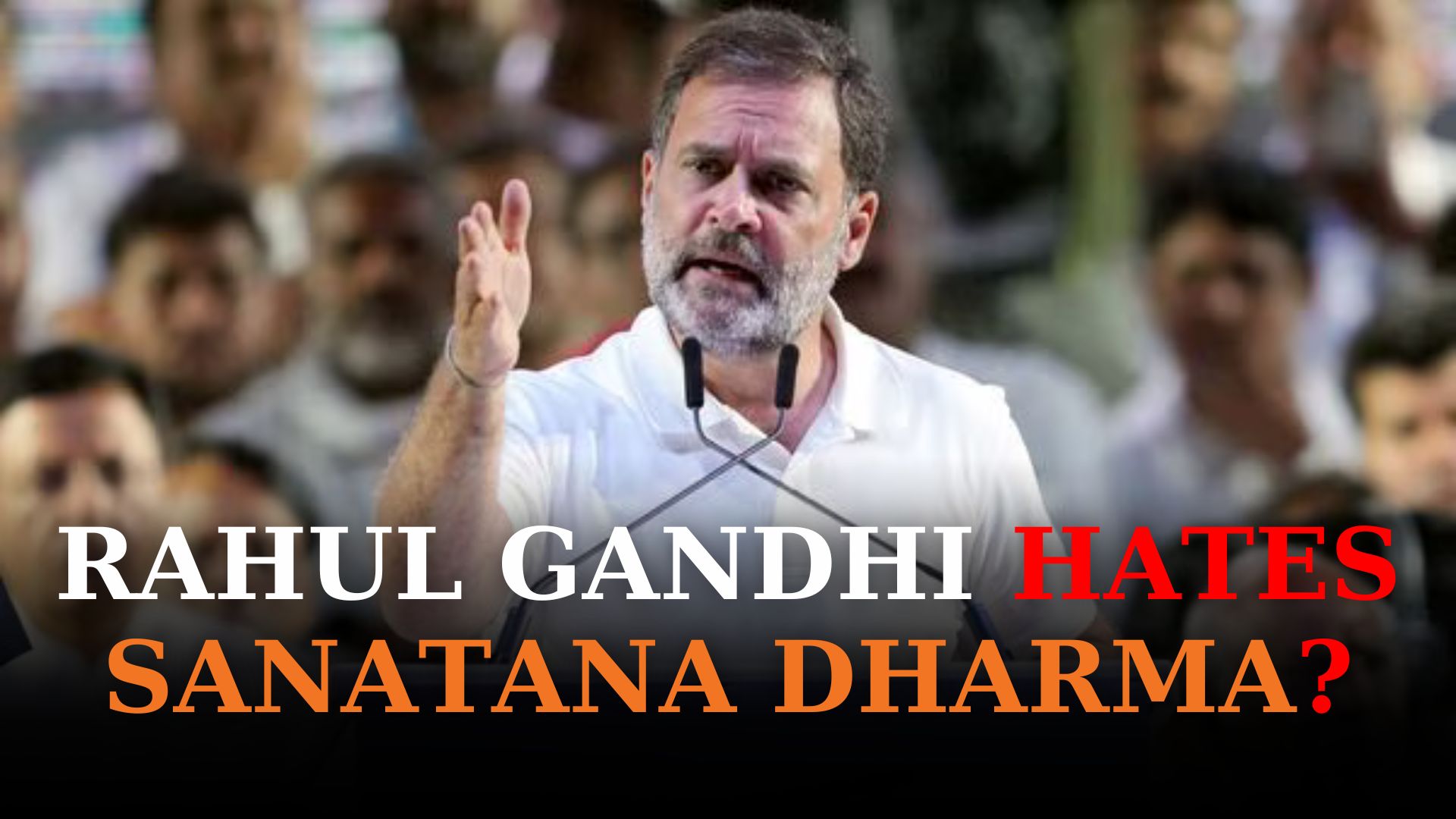In the intricate web of Indian politics, religion often intertwines with governance, manifesting in contentious debates and controversies. Recently, the spotlight has turned towards Rahul Gandhi, an heir of the Nehru-Gandhi dynasty and a prominent figure in the Indian National Congress (INC), amid allegations of his stance on Sanatana Dharma. This issue has not only sparked heated discussions within political circles but has also fueled public curiosity regarding Gandhi’s purported views on one of India’s oldest religious traditions.
The Accusations
VD Sharma, the state BJP president, launched a scathing attack on Rahul Gandhi, just a day before the scheduled visit to Madhya Pradesh. Sharma’s barrage of allegations encompassed not only Gandhi’s supposed disdain for Sanatana Dharma but also his failure to fulfill promises made during previous electoral campaigns. Sharma’s words struck a chord with his political base, igniting a fervor of criticism against the Congress leader.
Unfulfilled Promises
Sharma’s critique delved into the realm of electoral promises, highlighting Gandhi’s unmet pledges that included agricultural loan waivers, unemployment allowances, and subsidized LPG cooking cylinders. These assurances, made with great pomp and fervor, proved to be mere rhetoric, leaving farmers and the economically disadvantaged stranded amidst unfulfilled dreams. Sharma’s indictment portrayed Gandhi as a purveyor of false hope, exploiting the aspirations of the vulnerable for political gain.
Silence on Controversial Remarks
Furthermore, Sharma pointedly accused Gandhi of maintaining a conspicuous silence on crucial issues, particularly the incendiary remarks made by the DMK regarding Sanatana Dharma. Udhayanidhi Stalin’s comparison of Sanatana Dharma to malaria, coupled with calls for its eradication, sparked outrage across the political spectrum. Yet, Gandhi’s silence on this matter was deafening, raising suspicions about his true intentions and commitment to India’s cultural and religious heritage.
Critiques about Congress
VD Sharma’s diatribe extended beyond mere accusations, delving into the realm of governance under Congress rule. He painted a grim picture of the Congress administration’s brief tenure in Madhya Pradesh, characterized by broken promises and administrative ineptitude. Farmers languished in anticipation of loan waivers promised by Gandhi, while the specter of unemployment haunted the youth who awaited the much-touted allowances. Sharma’s portrayal of Congress governance as a tale of unfulfilled promises and shattered dreams resonated with the electorate, amplifying the chorus of discontent against the grand old party.
Also Read: The Mega Opinion Poll: Modi Remains BJP’s Trump Card
Congress’s Response
In the face of mounting criticism, senior Congress leaders scrambled to contain the fallout, seeking to dispel misconceptions surrounding the party’s stance on Sanatana Dharma. Former chief minister Digvijaya Singh and P Chidambaram stepped forward to reassure the public of the Congress’s commitment to religious pluralism and secular values. Singh vehemently denied any malicious intent behind the DMK’s statements, asserting that they were aimed at challenging caste-based discrimination rather than denigrating Hinduism.
DMK’s Statements
Singh’s elucidation of the DMK’s intentions sought to assuage fears and temper the growing animosity directed towards the Congress party. He reiterated the party’s longstanding commitment to upholding the principles of secularism and religious tolerance, urging critics to refrain from politicizing religious sentiments for electoral gain. Singh’s words served as a beacon of reassurance in a sea of uncertainty, offering a glimmer of hope amidst the turbulent waters of political discord.
In Conclusion, The controversy surrounding Rahul Gandhi’s alleged stance on Sanatana Dharma serves as a microcosm of the broader dynamics at play within Indian politics. It embodies the collision of ideology, identity, and power, as rival factions vie for dominance in the political arena. Yet, amidst the cacophony of accusations and counter-accusations, it is essential to sift through the rhetoric and discern the truth that lies beneath.
As the dust settles and the echoes of political rhetoric fade into the background, one thing becomes abundantly clear: the need for integrity, transparency, and accountability in governance. Regardless of political affiliation or ideological persuasion, the welfare of the people must remain paramount, transcending the petty squabbles of partisan politics.
In the final analysis, the controversy surrounding Rahul Gandhi’s alleged stance on Sanatana Dharma serves as a sobering reminder of the complexities inherent in the intersection of religion and politics. It underscores the imperative of fostering dialogue, promoting understanding, and embracing diversity in all its myriad forms. For only through such endeavors can we hope to forge a more inclusive, compassionate, and harmonious society for generations to come.
Also Read: Elvish Yadav With His Self-Contaminated Zone: Arrested Again!!

